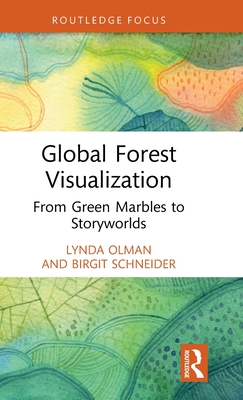
Global Forest Visualization(Routledge Focus on Environment and Sustainability)
全球森林可视化:从绿色大理石到故事世界
林业基础学科
¥
671.25
售 价:
¥
537.00
优惠
平台大促 低至8折优惠
发货周期:国外库房发货,通常付款后3-5周到货!
出 版 社
出版时间
2024年01月25日
装 帧
精装
页 码
112
开 本
216 x 138 mm (5.5 x 8.5)
语 种
英文
版 次
1st ed.
综合评分
暂无评分
- 图书详情
- 目次
- 买家须知
- 书评(0)
- 权威书评(0)
图书简介
This book project examines global forest monitoring as a means to understand the promises and problems of global visualization for climate management. Specifically, the book focuses on the Global Forest Watch, the most developed and widely available forest-monitoring platform which was created in 1997 by the World Resource Institute. Forest maps are always political as they visualize power relations and form the grid within which forests become commodities. This dislocation of the idea of the forest from its literal roots in the ground has generated problems for forest visualization efforts designed to empower local communities. This book takes a critical humanistic approach to this problem, combining methods from the fields of rhetoric and media studies to suggest solutions to these problems for designers and users of platforms like the Global Forest Watch. To explain why global views of forests can be disempowering, the book relies on biopolitical and rhetorical theories of panopticism and how these views unfold a different violence on different regions of the earth in relation to colonial history. Using this theoretical framework, the book explains the historical process by which forests came to be classified, quantified and mapped on a global scale. Interviews with end-users of global forest visualization platforms reveal if and how these platforms support local action. Lastly, the book provides rhetorical solutions to articulate global and local views of forests without reducing one view to the other. Those solutions involve looking to forests themselves for clues about how to generate more broadly effective and resilient visualizations. This book will be of great interest to students and scholars of forest studies, climate change, science communication, visualization studies, environmental communication and environmental conservation.
本书暂无推荐
本书暂无推荐













